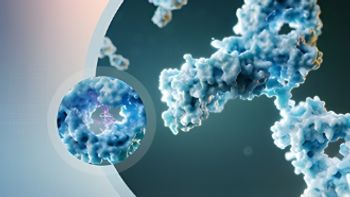
A Look Inside the 2024 ASMS Awards Program
This year the conference will honor the work of nine scientists working across industry, academia, and government.
Each year at its annual conference, the American Society for Mass Spectrometry (ASMS) presents multiple awards to experts in the field.
ASMS was formed in in 1969 to promote and disseminate information on mass spectrometry (MS),
The ASMS awards program is always a highlight of the conference, which is taking place from June 1-6, 2024, in Anaheim, California. This year, the awards will honor nine scientists all working in different applications of mass spectrometry (MS). Below, you’ll find an overview of the 2024 ASMS awards program.
John B. Fenn Distinguished Contribution in Mass Spectrometry Award
This award honors the memory of John B. Fenn, who shared the 2002 Nobel Prize for the development of electrospray ionization. Fenn was a member of ASMS from 1986, until he died in 2010. The award recognizes a singular achievement in fundamental or applied MS. Winners receive $10,000 in cash, a plaque, and an award’s lecture at ASMS.
Jennifer S. Brodbelt is the
2024 Research Awards
The Research Awards are presented to academic scientists who are within four years of joining their first tenure track faculty position or equivalent in a North American university at the time of the award. Winners will receive a monetary donation of $35,000 to a university in the name of the award recipient. This year the winners are Elizabeth K. Neumann of the University of California, Davis, Nicholas M. Riley, of the University of Washington, and Gabe Nagy, of the University of Utah.
2024 Research at Primarily Undergraduate Institutions (PUI) Awards
This award is funded by Agilent Technologies and is presented to a researcher from an accredited PUI. The winner receives a donation of $20,000 to a college or university in the name of the selected individual. This year, the award is going to Micah T. Donor, of George Fox University. Donor is assistant professor of biochemistry. His work focuses on the development and application of native mass spectrometry methods for structural biology.
Biemann Medal
The Biemann Medal was established to honor Klaus Biemann, an Austrian biochemist who is widely regarded as the
Al Yergey MS Scientist Award
The Al Yergey MS Scientist Award honors the work of “unsung heroes” in mass spectrometry. The award honors the work of Al Yergey, who served as a scientist at the National Institutes of Health (NIH) for 45 years. The three winners of this award will receive $1,000 and a plague. This year’s winners are Iain D. G. Campuzano, Russell P. Grant, and Melvin Park.
Campuzano leads analytical characterization teams in the US and Canada for Amgen Research. He is credited with establishing high-throughput mass spectrometry as a key analytical method during the discovery and screening stages of LUMAKRAS, the first small molecule therapeutic that covalently targets the mutated oncogene KRASG12C.
Grant is the strategic director and national director of mass spectrometry at LabCorp. His work has focused on marrying chromatography and mass spectrometry in the field of clinical diagnostics.
Park is director of Bruker Daltonics. He has more than 30 years of experience working on advancing the capabilities of advanced, high resolution mass spectrometry and ion mobility instrumentation. One of his most significant contributions includes the invention of trapped ion mobility spectrometry (TIMS).
Newsletter
Join the global community of analytical scientists who trust LCGC for insights on the latest techniques, trends, and expert solutions in chromatography.




